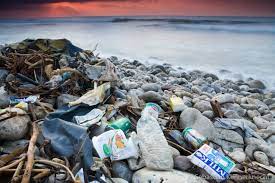✓ Servicing Pensacola, FL and the region
✓ Get a quote now, call (850) 366-1838
✓ Customer friendly experienced staff
✓ Fastest service in northern Florida
✓ Join hundreds of satisfied customers
Here at Dumpster Rental, Pensacola, FL, we are waste management specialists in Florida and want to make sure all our waste disposal projects are conducted under the greatest safety.
It is essential to implement recycling and waste management programs as a resource management system in order to help our environment in Pensacola remain sustainable.
Earlier in the 1970s and 1980s, recycling programs started to be implemented as part of the stable waste collection system. It is expected that the recycling programs in Florida will cover their cost similarly to waste collection programs elsewhere, through local taxes and user fees.
This will normally result in revenues offsetting program costs which are incorporated in the overall waste collection system and also an increase in recycling will result in a decrease in total system costs when disposal cost is high.

At present the approach which is considered the best practice to view commodities for recycling and also to manage them under the resource management system is consistent with a framework like zero waste and sustainable material management.
Sustainable material management
A resource management plan is referred to as a part of an integrated material management strategy in which the municipality of Pensacola take better and more effective decisions about the use of materials in an ecological way. The elements of this green program become the particular tactics to handle specific materials after they have been consumed by the community. Such methods include the following actions:
- Reuse
- Generation
- Recovery
- Collection
- Transfer
- Treatment
- Disposal
- Recycling
- Source Separation (recyclables and organics)
It may also be needed to define the different approaches to contracting the required services and how program services are funded. The effective resource management plans are incorporated in the following key areas:
- Single Stream Recycling
- Commercial Recycling
- Organic and Food Waste Recovery
- Multi-family Recycling
- Away from Special Event Recycling and Home
- How to Recycle Communications and Waste Awareness
- Planning is a process – Not an Event
A plan is considered a framework which can help us recognize a starting point from where we are now, the aim and objective for where do we want to be in the future, ways to get the objective, how can we go there as fast as possible, and the ways to identify the processes and what we measure to know we have moved the needle in the right direction.
It is necessary to evaluate if these objectives are met for the effective performance of the waste management plan, and the steps needed to take forward as a significant input in the future planning cycle.
The objectives need to ensure sustainable improvements for coverage of services and different standards for managing all resources. Our strategic planning in northern Florida provides an unusual opportunity for the delivery of sustainable improvements for effective and better local waste management practices, because it can respond to changes in the waste and recovered material market and research.
Collaborative approach
One of the proven methods for resource management planning is a public-private partnership for service delivery. To promote sustainable and self-supporting collaboration between business and local government is the primary objective of the program and it will support the operation and formation of any new enterprise municipal co-operation in recycling systems and solid waste management.
The goal of the program is to improve co-operation between private, public and citizen stakeholder that can minimize the negative effects of waste and improve the standard of living and livelihood of people in poor communities. It also helps in contributing to sustainable development of solid waste management and recycling in cities and rural communities.
Avoid the landfills
For several resource management plans and recycling programs, a diversion from landfills becomes an essential driver within the State of Florida and the local municipalities. It also operates under legislative guidelines to achieve specific diversion goals. When waste materials are poorly sorted from local landfills, they may end up landfilled by manufacturers due to their undesirable quality level, and they generally make a more extended trip to the landfills.
The fate of the materials recovered from our municipal recycling programs has to be examined to determine the actual and accurate diversion rate. It is essential that the recycling program can ascertain the quality of the materials used in the production of different recyclable products.
To ensure the functions and running of the whole recycling system, the local government of the state of Florida must provide recycling facilities that sustain all parts of the cycle and not only collection. The government should specify a location, marketing requirements, and processing systems in their request for facilities in the local ordinance for recovery service providers.
During the planning and implementing of the resource management programs, it is necessary for every stakeholder to give his input and feedback and also include manufacturing end market for different recovered resources. The goal of the recycling programs must be to increase the recyclability of all of its materials. This way our state and our country can become greener and more sustainable, hence lowering its carbon emissions.
